The High-Speed Rail Group Chair is a new position which covers a variety of aspects. First, to help with the development of a strategy for high-speed rail. It's about making sure that we have a plan for the next five years and beyond. I've done a lot of strategy work during my career.
Second, it gives a voice for the industry. Not just about high speed, but the whole economic case. You can't look at high-speed on its own. You must look at it from connectivity and accessibility perspectives, too.
Long-term benefits
I sit on the board of the High-Speed Rail Authority in Australia, which is fabulously exciting. It’s still in the early phases of planning Australia’s rail corridor, but the scale is completely different to anything that I've known. We’re talking about how we focus on the economic drivers and benefits, not the technical specification.
One of the first things I'd like to address as part of the HSRG strategy is how we change the narrative. We must talk about these economic drivers and benefits rather than technical specifications. It's fundamental - when you talk about new railways, people want to know how it will help the socioeconomic environment. “What's in it for me?”, not “How is it going to disrupt me?”.
The ‘naughty step’
If you look back at the UK rail network, we've had a significant amount of investment. I've been in the industry for nearly 40 years.
The UK was good at sweating its assets and creating capacity out of what it already had. We were quite visionary on doing HS1 and the Channel Tunnel rail link. We had significant cross-party support for HS1.
But our pace slowed compared to countries like Japan. There, they've built on that experience with different drivers, investment cases and governments.
The UK is quite small. Look at the progress that high speed rail has made in Spain, Asia, North America or Australia for instance, and I don't think it's a case of the UK having been slow to adopt high speed rail, more that other countries have benefited from what the UK has done.
We need to get rail off the naughty step and start talking about that long term narrative and the long term economic benefits it provides to communities.
Reputation recovery
I've worked for a few companies that have experienced significant reputational damage. When I became Commercial Director for Arriva Trains Northern over 25 years ago, a headline in print read ‘Dyan takes on the job that few would want’.
The company had just been named the worst train operator in the UK. So, we back to basics and changed the narrative. We didn't over promise. We delivered what we said we were going to do. I think HS2 can do that too.
There are many good things that HS2 has done, representing a significant amount of innovation. Not just from a work site perspective, but also from an employee perspective with many skills that HS2 has been addressing through the apprenticeship schemes. There are significant legacy items that HS2 will be leaving not just for rail, but for the country.
Crossrail has been forgiven for being late and for being over budget and it's now regarded as a significant piece of infrastructure in London. The same will happen to HS2.
It's difficult when you're working in a business that feels like it’s under attack and you have a black cloud over you. But that black cloud will go. I say to those in HS2 - stay positive, stay focused. In the longer term, your time will come. We must think longer term, we have to make people fall in love with rail again.
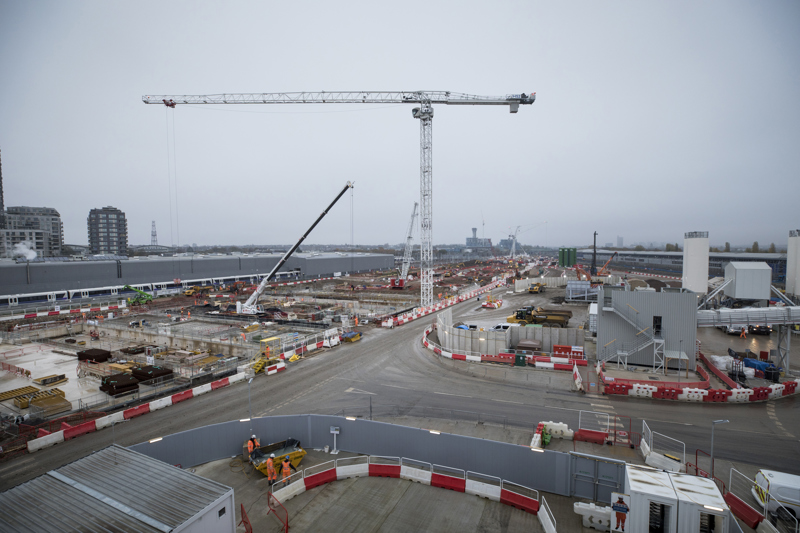
The first base slab concrete pour for HS2 tracks at Old Oak Common station. HSRG
Drawing comparisons
HS1 and HS2 are different in size and scale. HS1 is small at 106 kilometres, with four stations and an international link. We were building an international railway. HS2 is different. It was always planned to be bigger.
As with most big schemes, it's often the planning and consultations of the route that takes time. And it’s certainly something that we're spending a lot of time on in Australia now.
HS1 has been remarkably successful in that it understands the economic and social benefits that it has brought.
An independent study in 2019 identified unintended positive consequences. That's when we started to understand the sustainability benefits of HS1 – replacing 66,000 flights a year and removing 750,000 tonnes of carbon a year from the atmosphere.
For too long the debate has been on tangible evidence when it comes to the wider economic benefits of the project. But there is definitive proof - new figures show that £10bn will be added to the West Midlands’ economy over the next 10 years. HS2 is spreading prosperity across the West Midlands – from the creation of jobs, apprenticeships, economic investment and a wider legacy.
Private investment
Britain needs to transform its national transport infrastructure to create a reliable and resilient network which supports and drives economic growth, transforms our prosperity and productivity, brings our country together and lifts up left-behind regional economies.
Private sector investment is essential for the future. The UK has a good history of private investment. Look what privatisation brought to the UK, not just in rail infrastructure, but also in rolling stock, stations, car parks and customer experience. Let's not forget what's already been achieved. We should explore all options and funding models to deliver as quickly and affordably as possible for the country.
North of Birmingham
Britain needs to transform our national transport infrastructure to create a reliable and resilient network which supports and drives economic growth, transforms our prosperity and productivity, brings our country together and lifts up left-behind regional economies.
Our existing and under construction high speed rail network, comprising HS1 and a truncated HS2 from London-Birmingham, gives us the platform to build this transformed national network, but on their own are not enough and fail to reach key cities and regions that need economic growth, in particular leaving the north of England, north Wales and Scotland behind yet again.
Of course, we would work with the mayors if required. Indeed, some HSRG members are part of that consortium.
HSRG has a lot of information and data. We will work with government and the private sector because we understand that trying to deliver significant investment and infrastructure needs cross-system planning.
High speed rail is not just down to one body, and nobody has a monopoly on it - everyone has that part to play.
There’s a role to play for the private sector. Governments have their budget, but there must be separate ways of getting investment in. We found a solution for HS1 - it can't be that difficult for HS2, can it?
We need to build a comprehensive solution, investing seriously in the north’s railway to transform both East-West travel across the Pennines, and North-South travel from Birmingham to the north of England. We must tackle the key bottlenecks and deliver economic growth and productivity for the Midlands and the North.
It is critical that this network connects into central London to maximise economic growth benefits for the whole country.
On projects across Europe and certainly in Australia there is a role for private sector investment because railway lines are costly. But once built, they're here for a long time. We must look beyond the initial cost factor – railways provide more than a century of economic benefit.




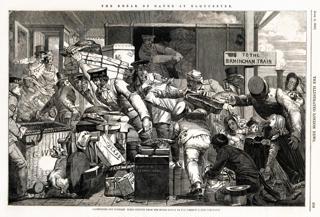
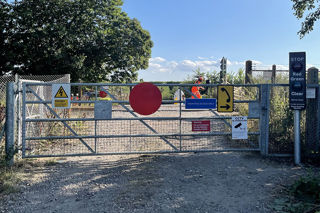
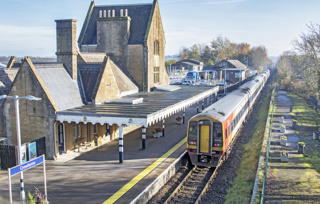
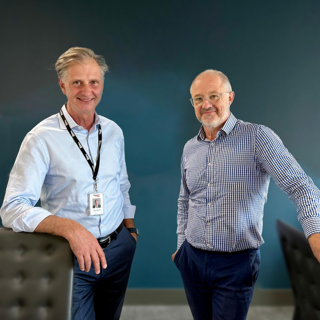











Clive Richardson - 21/02/2024 19:17
Some good points regarding socioeconomic factors however; this is a typical talk it up article that compares the UK with Australia and Japan (amongst others) where laws and topography are totally different. We have seen what private investment has done for the railways in the UK with new rolling stock etc (subsidised by the hardworking UK taxpayer in a bid to make the politicians look good) and any profits being taken out of the country into the coffers of the foreign investors; never mind that moneypit called Railtrack. Does anyone really know or understand how much these lauded private investors have cost the UK taxpayer? I agree with the benefits of HS2 for the midlands/south but the northern powerhouse appears to be getting little now HS2 has been cancelled beyond Birmingham. It is sure thing that other existing projects that are already happening in the northern section will magically appear in the Governments (additional) spending promise and in fact little new monies will appear as investment from them.